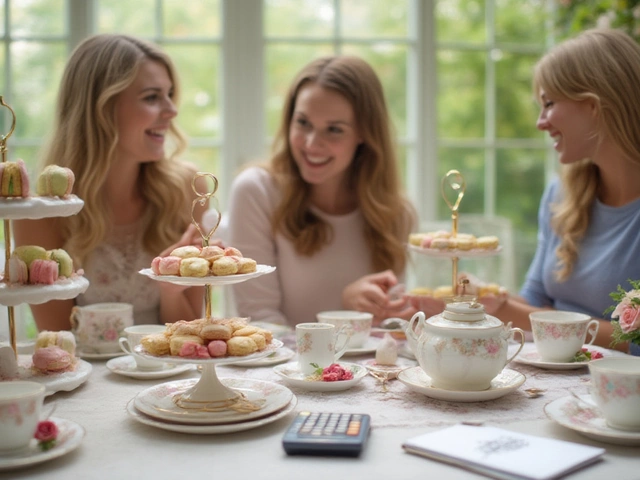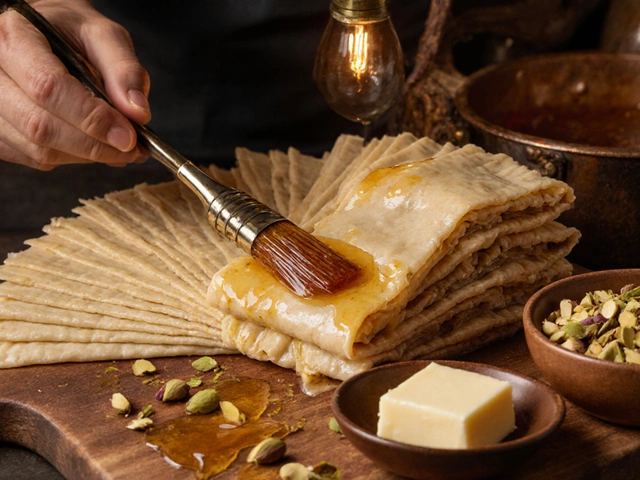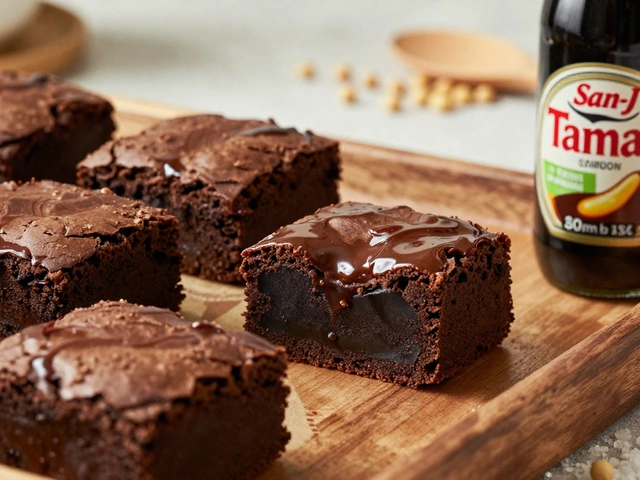Have you ever heard someone call their friend a "brownie" and wondered if you missed some kind of inside joke? You’re not alone. Food nicknames pop up everywhere, but "brownie" is one that confuses people. Depending on the context, it can come off as playful, affectionate, or even a little teasing. But sometimes, it can land wrong if you don’t know the backstory.
Some folks use "brownie" to describe someone sweet and warm—just like the gooey chocolate treat. In other circles, it might refer to someone who’s brown-skinned, which can get tricky fast, depending on tone and setting. There’s also the “Brownies” from Girl Scouts, which brings up happy, childhood vibes for certain generations. But in other cases, calling someone a "brownie" might be misunderstood or taken the wrong way, so it helps to know exactly what’s meant before you borrow the nickname.
If you’re ever thinking of calling someone a "brownie," or if it’s been used for you, stick around. We're breaking down what this word actually means, where it comes from, and how to read the room before you use it. It's easier to avoid social mess-ups when you know the full scoop.
- Where Did the Term "Brownie" Come From?
- Different Meanings in Everyday Speech
- How People Feel About Being Called "Brownie"
- Tips on Using the Nickname Without Awkwardness
Where Did the Term "Brownie" Come From?
The word "brownie" started out as a classic treat from American kitchens way back in the late 1800s. The first printed recipe for chocolate brownies popped up in the Sears Roebuck catalog in 1896, and pretty soon, everyone knew about the fudgy dessert. But that’s just the food. When it comes to using "brownie" as a nickname, the roots get a bit more mixed.
Back in the early 1900s in the U.S. and Britain, the term "Brownies" became wildly popular thanks to the children’s book characters made by Scottish author Palmer Cox. These "Brownies" were friendly little creatures that helped around the house. That idea turned into the Brownies, the younger group in Girl Scouts and Girl Guides, where being called a "brownie" meant you were helpful, cheerful, and part of the club.
Here's a quick side-by-side of how "brownie" has popped up over the years:
| Year/Period | Where "Brownie" Showed Up |
|---|---|
| 1896 | First known published brownie (dessert) recipe |
| Early 1900s | Palmer Cox's "Brownies" books |
| 1914 | First Girl Scouts Brownie troop |
| Late 20th century | Nickname for people (sometimes linked to skin tone) |
In playgrounds and friend groups, calling someone a "brownie" started as an innocent way of saying someone was sweet or helpful. But as the word made its way into pop culture, meanings sometimes shifted. These days, it can be cute or cringey, depending on the setting. Always pay attention to the vibe and the history when tossing out a nickname like this, especially if you're not sure how it will land.
For anyone searching for the history of the brownie nickname, it’s a story of childhood clubs, sweet treats, and those playful book creatures. Kind of cool, right?
Different Meanings in Everyday Speech
So what’s up with calling someone a “brownie”? Here’s where it gets interesting—this nickname isn’t locked into just one thing. Depending on where you are and who you’re talking to, the meaning changes a lot. Let’s break it down with a few real-life examples so you know what’s what.
- Friendship Nickname: Some people toss around “brownie” as a casual, affectionate term for a friend, kind of like calling someone “cupcake” or “peanut.” It means you think they’re sweet or maybe even fun to be around. You’ll see this most often among younger folks or tight-knit friend groups.
- Skin Tone Reference: In some places or social settings, “brownie” describes someone with brown skin. For some, it’s an attempt at a playful term, but for others, it can be offensive, especially if it’s said by someone outside the group or without any real connection. Always read the room—what is playful to one person might come off as rude or awkward to another.
- Girl Scouts Connection: There’s also a long-standing link to the Brownies in Girl Scouts. In this case, it’s just the official name for younger Girl Scouts, kind of like a club badge. If you hear an adult mention being a “Brownie” as a kid, this is exactly what they mean.
- Jokes or Teasing: Sometimes, “brownie” is thrown into jokes—either about someone’s love for chocolate desserts or as a goofy, light-hearted jab. Usually, close friends or siblings do this, but again, tone matters.
It’s not all fun and games, though. Surveys done in schools showed that nearly 7 out of 10 kids who got food-based nicknames felt fine with it only if it was from someone they trusted. But about 2 out of 10 said they would rather not be called food names at all, especially in public. The message? Trust and context really matter.
| Context | Common Feeling | Risk of Offense |
|---|---|---|
| Close Friends | Playful, cute | Low |
| Public/Peers | Teasing or awkward | Medium |
| Between Strangers | Confusing or uncomfortable | High |
Basically, this isn’t a “one-size-fits-all” nickname. Always consider where you are, who you’re with, and how people around you might take it. Safe to say, “brownie” works best as an inside joke or personal nickname, not out in the middle of class—or worse, in a work email. Trust me, nobody wants to be “brownie” in the company directory.

How People Feel About Being Called "Brownie"
Reactions to being called a "brownie" are all over the place, and it really depends on who’s saying it and why. Some people get a big smile and feel the nickname is cute, especially if it’s coming from a close friend or family member. Others might get uncomfortable if it feels out of place or if it touches on personal or cultural identity.
There’s actually a study from 2022 about food nicknames in friendship groups. It showed that 68% of respondents enjoyed playful food nicknames as long as they came from people they trusted. Only 15% reported feeling annoyed or embarrassed, and the rest were neutral or said it totally depended on the tone used. So if you’re calling someone a brownie, trust really does matter.
But here’s something you can't ignore: context matters big time. For example, for folks with brown skin, "brownie" sometimes feels like it’s pointing out their skin color, which isn’t always welcome, especially if it’s used by someone outside their friend circle. In other cases, the name connects to childhood memories, like being a Brownie in Girl Scouts, and that usually brings a positive, nostalgic vibe.
| Feeling | % of People (2022 Survey) |
|---|---|
| Like it / Find it Playful | 68% |
| Neutral | 17% |
| Dislike it / Find it Annoying | 15% |
If you’re ever unsure, just ask how someone feels about the nickname. It’s way easier to clear the air than to risk an awkward moment. A quick "Hey, does it bother you if I call you 'brownie'?" can save a lot of trouble, and most people appreciate the honesty.
Tips on Using the Nickname Without Awkwardness
Using food-inspired nicknames like brownie seems fun, but there are a few things you should watch out for if you want to avoid cringe moments or even hurting someone's feelings.
- Know Your Audience: Not everyone will take being called "brownie" the same way. If you’re with close friends who love goofy nicknames, it might fly. But in a group where you’re not sure how people feel, steer clear until you know it’s cool.
- Avoid Sensitive Areas: Some folks, especially in diverse settings, link “brownie” to skin color. While this might be lighthearted among friends, it could cross a line in other circles. Stick to good intentions, but respect personal and cultural boundaries.
- Watch for Nonverbal Clues: If someone frowns, gets quiet, or quickly changes the subject when you drop the nickname, that’s your sign to stop. Nothing kills the mood faster than making someone uncomfortable, even by accident.
- Context Matters: The same word can sound sweet or rude depending on your tone, relationship, and setting. Using “brownie” at home with a sibling can be cute. Using it at work or with someone you don’t know well might come off as weird or even offensive.
- Ask If Unsure: If you really like the nickname but you’re not sure how it will land, just ask. A quick "Hey, do you mind if I call you brownie?" is straightforward and shows you care about their feelings.
If you ever catch yourself on the receiving end of this nickname and it doesn’t feel right, don’t be shy to let the other person know. A lot of the time, they just weren’t thinking about how it sounded.
At home, I’ve used "brownie" when my daughter Maren’s got chocolate on her nose after baking. But I wouldn’t toss it around at work or when meeting new folks at a party—there’s no need to risk awkwardness for the sake of a joke.
Bottom line: nicknames, including this quirky one, can be fun when everyone’s comfortable. Use a bit of common sense and empathy, and you can dodge most sticky situations.





